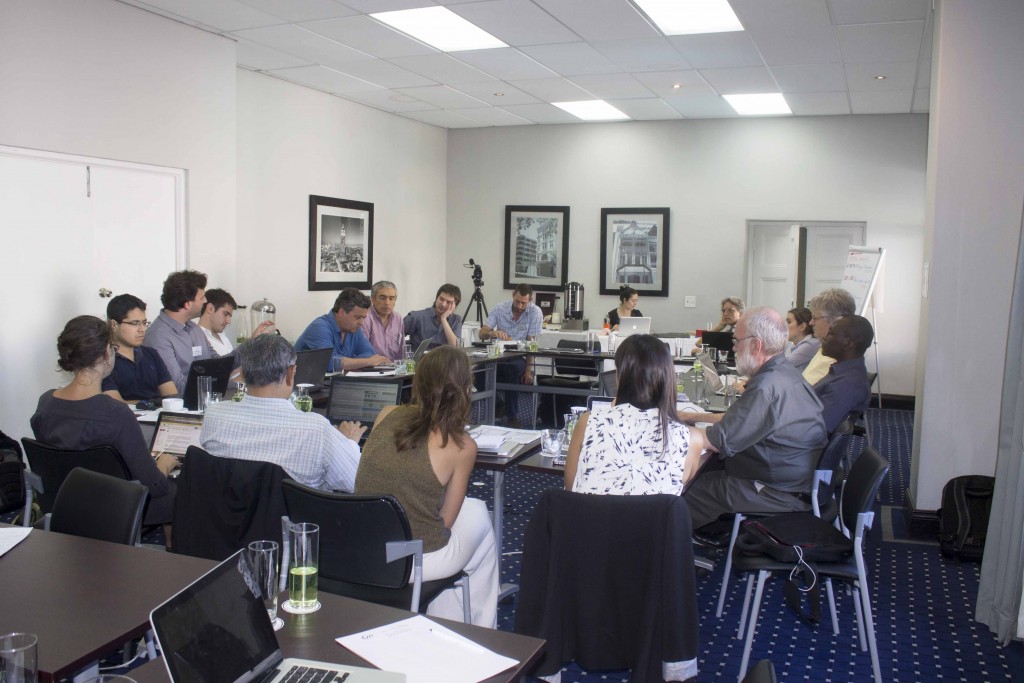
The Climate Change Mitigation in Developing Countries course was developed by the University of Cape Town (UCT), and is being run on the US MOOC platform Coursera. One year on, this post looks at how the course has been received by participants and what their feedback has been about the central premise of the course, which is how to mitigate climate change while promoting development. The participant comments in this post have been drawn from the public ratings and comments left by learners.
Overall, the course has been well received and rated highly by participants with one remarking that this was a “Super-awesome course that taught me about the super-wicked problem of our time and how to effectively achieve climate change mitigation and development objectives from developing countries context.”
How can we mitigate climate change, while promoting development? These issues are both part of a complex system, and reconciling the two is what’s known as a “super wicked” problem. These are not easy to solve and there is generally is no one “correct” answer. Meeting conflicting demands of development and mitigation requires that stakeholders and decision-makers go through a process of co-producing knowledge about the system. In South Africa the Mitigation Action Plans and Scenarios (MAPS) initiative was developed to do just this.
As the course explains MAPS processes and uses its case studies from developing countries such as Brazil, Chile, Colombia and Peru as examples, with one participant finding that the course “explains the issue of how developing countries are facing climate change and on that aspect it presents the information not only the way they deal with it but the obstacles they encounter in the process. It also introduced very interesting concepts that could be used outside of this course.”
Along the way, participants learn about the importance of procuring a government mandate for the work, gathering credible data, how to select which scenarios to explore, what models are available, and their advantages and disadvantages. According to the case studies there is usually a gap between what the mitigation models indicate is achievable, and what is likely to be required to avoid severe climate change consequences. The course discusses possible solutions to closing this mitigation gap and the MAPS team share some ideas. Near the end the concept of “bridges” – between knowledge and domestic policy, and from domestic policy to international contributions and agreements is discussed. Through this holistic approach to the topic participants are exposed to a multifaceted view of climate change, with one commenting that the course was “outstanding, in terms of interest, inspiration [and] technical content‘ adding that it helped in “stimulating new ideas” and “learning from other course participants”.
Climate Change Mitigation consists of a series of online video lectures, peer-reviewed assignments and graded quizzes, and interactive discussion forums. Lead educator on the course is climate change expert Professor Harald Winkler, head of the UCT Energy Research Centre, and a long-time member of the South African delegation at the United Nations climate change negotiations. This course explores the challenges faced by developing country governments wanting to grow their economies in a climate friendly way, and addresses the complexity inherent in lifting societies out of poverty while also mitigating greenhouse gas emissions. It achieves this without being too technical making it “An excellent course to understand the mitigation process”, according to a recent participant.
The course is suited to climate change practitioners, development workers, students, lecturers and teachers, or simply those who are curious about how climate mitigation is understood.
As Professor Winkler explains: “This course is for those who want to tackle the tough challenges of development and climate change … I really hope that this course will inspire you to take action and to make a difference in your context. It’s only by everyone acting together that we can hope to solve the development and climate challenge.”
See the course overview on the sign-up page
